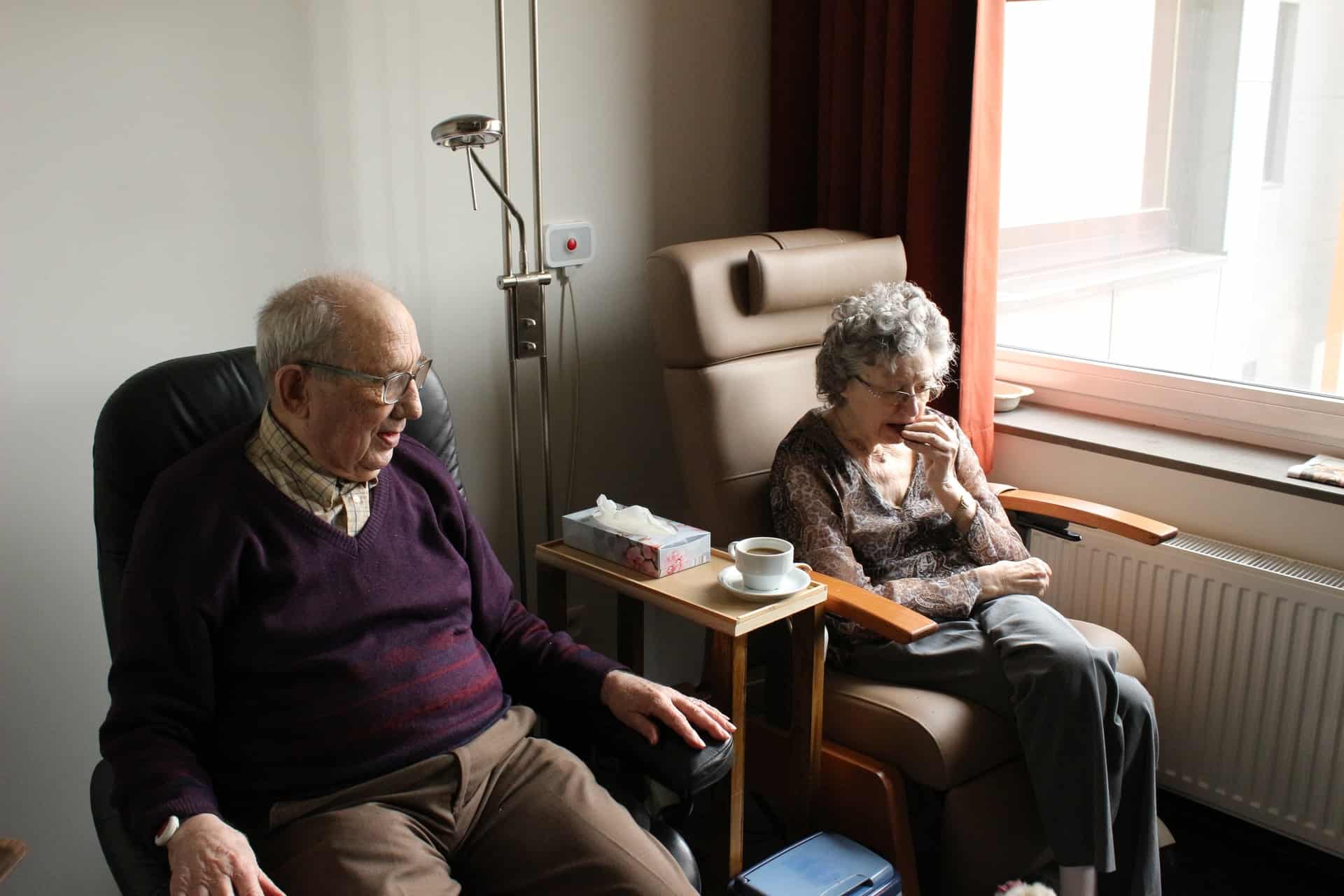6 Spots to Track down Monetary Help for Senior Consideration
As the expense of senior consideration keeps on rising, many keep thinking about whether they will actually want to get their cherished one the assistance they with requiring. Fortunately, increasingly more government and not-revenue driven organizations are attempting to help those deprived by settling the bills related with the clinical and wellbeing prerequisites of the old. Assuming you’re needing monetary help for helped residing, in-home help, specialist’s visits, or prescriptions, there is somebody who might be listening able to help.
Federal health care
Federal medical insurance is the primary spot many individuals look while taking care of senior consideration costs. However long you have paid into this program more than your lifetime, roughly 48% of your wellbeing charges will be covered. The leftover 52% should be covered by confidential protection or using cash on hand. Federal medical care payouts normally start at age 65, however special cases are made for people with specific physical or mental inabilities.
Medicaid
Like Federal medical care, Medicaid is an administration help program intended to give extensive wellbeing inclusion to the old. Dissimilar to Federal health insurance, Medicaid was explicitly planned for those with lower wages or restricted implies. To be qualified, candidates need to lay out their age, actual inability, and work history. For specific qualified beneficiaries, Medicaid takes care of 100 percent of the bills of surgeries, remedies, and long haul help.
Long haul Care Protection
Long haul care protection (LTCI) is a kind of plan that helps cover costs not ordinarily repaid by confidential protection. It limits the monetary effect of long haul medical services. Contingent upon the arrangement, it might cover helped residing, rest projects, and nursing homes. It is critical to take out a LTCI plan before medical problems emerge, as most organizations won’t cover previous circumstances.
Extra security Strategy Transformation
Rather than permitting an extra security strategy to slip by, you can change over certain approaches into a unique Long haul Advantage Plan. Like an arrangement buyout, this choice permits you to exchange part or all of a strategy for guaranteed cash. This cash can then be utilized to cover for doctor’s visit expenses. There is no expense to apply for a transformation, and the patient need not be critically ill for this intend to come full circle.
Switch Home loan
A home Value Transformation Home loan (HECM), otherwise called a graduated house buyback, is an extraordinary sort of credit that permits property holders 62 years or more seasoned to change the value in their home over completely to cash. Not at all like some strategy payouts or Federal health care or Medicaid, there are no legitimate limitations on how cash from a graduated home buyback is utilized. In the event that you want cash for senior consideration costs, a graduated home buyback can rapidly give you admittance to vital money.
Region Organization on Maturing
As a component of the Organization on Maturing, there are currently governmentally ordered Region Organizations on Maturing in urban communities around the US. These organizations are staffed by volunteers and experts who are in contact with neighborhood senior projects and administrations. They will assist you with getting to drivers, Feasts on-Wheels, housekeepers, and different administrations that will assist you with keeping up with the freedom you want. The experts can likewise place you in contact with different wellsprings of subsidizing that may be specific to your area.
With the assistance of these projects and organizations, senior consideration can turn out to be significantly more reasonable. Talk with an expert or a senior consideration office close to you to figure out what programs you are qualified for.
Exploring PACE Membership
Who Does PACE Serve?
In order to qualify for a PACE program, a person must be 55 years of age or older, live in a PACE service area, and be certified by the state to need a home care services like nursing home-level care.
The typical PACE participant is very similar to the average nursing home resident. On average, she is 80 years old, has 7.9 medical conditions and is limited in approximately 3 activities of daily living. Forty-nine percent of PACE participants have been diagnosed with dementia. Despite a high level of care needs, more than 90 percent of PACE participants are able to continue to live in the community.
Exploring PACE membership is a one-year program that offers an array of information and services to assist in assessing needs, developing strategies and making the decision whether or not to proceed with PACE development. At the end of the service year, organizations or home care agencies may credit their Exploring PACE membership dues toward the subsequent year’s Prospective Provider membership dues.
How much does Exploring PACE membership cost?

Benefits of Exploring PACE membership include:
- A demographic report of the population, income and health factors shaping an organization’s PACE enrollment projections.
- PACE Financial Proforma Baseline Scenario—a detailed financial scenario reflecting the cost and revenue experience of successful operating PACE programs.
- Access to the PACE Financial Proforma—an interactive tool for creating your site’s financial projections. Available when working with a PACE Technical Assistance Center.
- Guide to Site Selection and Center Development—a guide to assessing possible PACE locations and existing facilities that could be adapted for PACE.
- Strategic planning and facilitation—NPA staff will work with organizations’ leaders to assess how PACE fits within their strategic plan and define the challenges and opportunities of PACE.
- Keeping the PACE—a biweekly e-mail newsletter featuring the latest association, regulatory and health care news.
- Discounted registration fees for NPA’s conferences and educational events.
Starting a New PACE Program
If you are interested in starting a PACE program, you can request an Interested Provider Package.
Starting a new PACE program can take from eighteen months to three years, depending on organizational resources and local factors.
Major stages of development include:
Stage 1 – Organizational Assessment
2 – 4 months
- Organization completes market and organizational assessment to determine if demographics and organizational resources and services will support development of a PACE program.
- Organization establishes relationship with state.

4 – 6 months
- Organization identifies funding sources and prepares business plan.
- Organization continues to work with the state to establish support for PACE.
Stage 3 – Planning & Development
9 – 18 months
Organization secures funding, develops a PACE center, hires and trains staff, develops administrative, financial and MIS systems, and begins marketing the program.
Organization completes necessary state and federal applications; and obtains necessary licenses.
Stage 4 – Enrollment & Ongoing Operations
- Organization provides all acute and long term care services and operates under capitated Medicare and Medicaid reimbursement assuming full financial risk for all services.
- Organization builds program census, establishes interdisciplinary care team, and integrates all service and implements quality assurance mechanisms.
NPA provides resources to assist organizations at each of these stages of development.
Senior Care during the “Holiday Blues”
Although the winter holiday season is supposed to be a time of sharing joy and good tidings, oftentimes people—especially those who are older—find that, as the season unfolds, they feel progressively disappointed, stressed and sad. Some elders in elderly care home are feeling the same sadness when their family or love ones are too busy and don’t have time to visit them.
There are many influencing factors that can contribute to seniors being at particular risk of suffering from the “holiday blues,” including:
Reminders of past losses of significant loved ones–Many seniors have survived a number of their cherished friends and family members and these losses often take on greater significance during the holidays.
- Sadness over the contrast between “then” and “now”—For many older people, the memories of holidays past so outshine present day celebrations they feel unable to focus on or experience pleasure in the “now.”
- Unrealistic expectations—the holidays can bring a host of expectations, such as family togetherness, festive events and feelings of expanded happiness. Reality too often falls short of these expectations, which can cause an individual to plummet to new lows of sadness, feelings of loneliness and despair.
- Spending the holidays alone—Some seniors live by themselves or at home healthcare and/or at a distance from friends and family and spend much, if not all, of the holidays alone. Grown children often become busy with their own social obligations and may not realize how much their parents or grandparents look forward to sharing time during the holidays with them.
- Coping with failing health—The holidays can often serve to underscore the limitations failing health imposes on the ability to participate in once-enjoyed activities.
What Can You Do?
The following strategies can be useful in helping to get around potential sources of the “holiday blues”:
- Adjust your expectations—For example, if you think the perfect family get-together won’t be a part of this year’s holidays, keeping this realistic assumption in mind can help you avoid frustration when and if something should go wrong or be less than desirable when your family gets together.
- Limit predictable sources of stress—If you feel the annual trappings of shopping, decorating, cooking and attending social events risks becoming overwhelming and stressful, limit the activities you commit to.
- Get together with friends and family members—As much as possible, share the holidays with friends and family members in person, as well by phone, e-mail, and mail. The holiday season is also a good time to contact someone you have not heard from for awhile. For those who have recently suffered the loss of someone especially close, spend time with special friends and family with whom you can reminisce and share stories and cherished memories about your loved one.
- Attend holiday community events—Most communities offer special events during the holidays, such as theatrical and orchestral performances, that can be enjoyable to look forward to and to attend.
- Join a social group—Feelings of loneliness and isolation can often be remedied by participating in activities with others. This can also help in opening up the potential for making new friends. You might consider looking into groups affiliated with your local church, museum, library or community center.
- Engage in volunteer activity—Helping others is a pretty foolproof method of making the holidays feel more meaningful. There are many volunteer organizations that need extra help during this time of year.
- Enjoy activities that are free—Financial strain can be the cause of added stress during the holidays, however, there are many ways of enjoying the season that are free, including driving or walking around to admire holiday decorations, going window shopping without buying, making a snowperson with children, and attending free concerts.
- Don’t drink too much—Many of the season’s parties and social gatherings include alcohol. Be aware that excessive drinking will only increase feelings of overwhelm or depression. Alcohol is NOT an antidepressant and, in fact, often worsens mood.
- Seek new, enjoyable ways of getting physical exercise—Exercising, for example, aerobics, walking, skiing, hiking, yoga, or swimming can help burn away a lot of stress as well as the extra calories of holiday meals.
- Adopt a pet—Many have found that assuming the responsibility of caring for and loving a pet brings new joy and companionship into their lives.

Spend Time With Supportive and Caring People
In all of the ways listed above—as well as any other opportunities you can think of that specifically apply to your life—it cannot be emphasized enough how important it can be to spend the holiday season in the company of supportive and caring people.
Many seniors have found that seeking the counsel of a therapist during this time of year provides just the kind of support and care that helps them with the many emotional issues that arise in response to the holidays. Therapy provides a safe, comforting, and confidential setting in which to receive the kind of help and understanding that can best assist in first relieving, then understanding, and finally recovering from the effects of feelings of sadness, disillusionment or loneliness .
Could It Be Depression?
The added demands of the holiday season can sometimes overload an already stressed, almost depressed emotional system. If you are unable to shake what you think are the “holiday blues,” you may be suffering from depression. The difference between the “holiday blues” and depression is essentially based on the duration and the degree of the symptoms. When conditions and affects such as the following last for two weeks or longer, it could, in fact, be depression:
- Persistent sad, anxious, or empty mood
- Sudden loss of pleasure and interest in activities that are usually enjoyed
- Feelings of guilt, worthlessness, helplessness
- Difficulty sleeping, or increased sleeping
- Behavior that is more nervous or agitated than normal, or more slowed and unresponsive than normal
- Complaints of being tired all the time and having low energy
- Significant weight loss or gain
- Social withdrawal
- New and persistent physical symptoms that don’t respond to treatment, such as headaches or digestive disorders
- Difficulty with thinking or concentration
- Thoughts of suicide**

If left untreated, the depressive symptoms will only continue on beyond the holiday season and progressively worsen, causing needless pain and suffering, not only to the person who is depressed, but also to those who care about them. Untreated depression can even become a life-threatening disorder as it persistently distorts thinking, making the individual feel more and more hopeless about themselves and life in general.
There are therapists who are particularly skilled at helping those who are suffering from depression so that they’re better able to enjoy a winter holiday season that’s merry and bright and to look forward to the new year with health, hope and optimism.
**Suicidal ideation is always a serious matter and should be immediately responded to by enlisting professional assistance, for instance, calling “911,” and/or seeking help from a local suicide hotline (listed in your Yellow Pages under “Crisis Intervention Services”), and/or contacting a local mental-health professional.
Looking for CNA Jobs in San Diego County? Requirements and Future Aspects
About CNA Jobs in San Diego
This is because people will not stop getting sick even during the lowest economy. Nursing especially never loses its job luster. Statistics show that there is a significant amount of scarceness in the amount of nurses. And this scarceness is expected to increase with the passage of time. California still has a dearth of 49% of senior care jobs needed, and this dearth is expected to continue till 2025. So, until now CNA is considered a very safe profession in regard to the job prospects. Also, one doesn’t have to go through lengthy schooling. To become a CNA, one has to complete high school and then enroll in a state certified CNA course which lasts only a few weeks. Then, pass the certification exams, get certified and get a job. This certification also has to be renewed in every two years. As getting a job for CNA is easy, one will start earning as soon as the aforementioned procedure is completed. But if you have the CNA license of California, you will only be able to work in the state of California.
How to find a CNA Job?

The responsibilities of CNAs include moving patients from here to there, feeding them on time, performing all their hygiene activities and reporting any changes in them to the doctor. CNAs have to work with the patients during the whole recovery process. They become friends with patients, share their grief and pain, and still give them the hope to hold on. And yet, at many times, CNAs may not receive any credit towards the improvement in the health of patients. Hence, CNAs need to understand that they do this work charitably for patients and not to receive any accolade. That is the reason CNAs are satisfied with their jobs. And anyways CNA is a job for those with the feeling of philanthropy.
In home senior care CNA job

In California, a CNA earns $ 40,400 on average. The salary largely depends on the CNAs, their skills and the place they work. For example in home senior care and working privately for individuals in their homes will lead to higher wages than working in a hospital. It also depends on one’s experience; the more the experience, the better the paying. And once you have a CNA certificate, the doors of medical field are open to you. You can rise in the position with experience and additional training.





 Reminders of past losses of significant loved ones–Many seniors have survived a number of their cherished friends and family members and these losses often take on greater significance during the holidays.
Reminders of past losses of significant loved ones–Many seniors have survived a number of their cherished friends and family members and these losses often take on greater significance during the holidays.